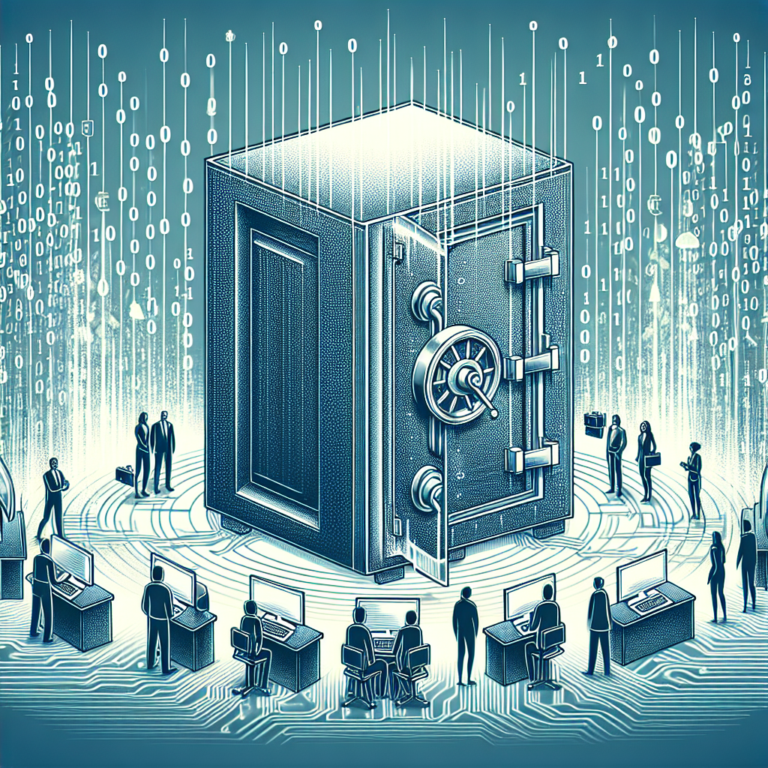In an increasingly digital world, the way we manage and secure our assets is evolving. Cryptocurrencies, digital identities, and blockchain technology are not just buzzwords; they represent a fundamental shift in how we verify ownership, transfer value, and protect assets. One of the most promising advancements in this realm is digital title technology, which offers innovative solutions for securing ownership rights in an increasingly complex digital landscape.
What is Digital Title Technology?
Digital title technology utilizes blockchain and other decentralized technologies to create secure, tamper-proof records of ownership for various assets, ranging from real estate to personal property and even digital assets like NFTs (non-fungible tokens). By storing ownership records on a decentralized ledger, digital title technology aims to enhance transparency, reduce fraud, and simplify the processes associated with buying, selling, and transferring assets.
Key Features of Digital Title Technology
-
Transparency and Immutability: One of the core principles of blockchain technology is that information recorded on the blockchain is immutable. This means once a digital title is established, it cannot be altered or forged, providing unprecedented security and trust in ownership records.
-
Efficiency: Traditional methods of tracking ownership—encompassed by paperwork, intermediaries, and lengthy verification processes—can be cumbersome and time-consuming. Digital title technology automates these processes, reducing the time and costs associated with transactions.
-
Accessibility: By digitizing titles, asset owners can easily access their ownership records through secure online platforms. This accessibility empowers individuals to manage their assets more effectively and increases their engagement with the asset market.
-
Smart Contracts: Digital title technology often employs smart contracts—self-executing contracts with the terms written directly into code. These contracts can automate various processes, such as transferring ownership upon payment, thereby mitigating risks associated with manual transactions.
- Global Reach: Digital titles can be accessed and verified from anywhere in the world, making international transactions more efficient. This global accessibility helps stimulate international trade, allowing individuals and businesses to engage with broader markets.
Applications of Digital Title Technology
The implications of digital title technology are vast and extend to multiple sectors, including:
Real Estate
In real estate, digital title technology can streamline the buying and selling process by providing a clear, verified chain of ownership. It eliminates the need for extensive title searches and can shorten transaction times significantly. Homebuyers and sellers can benefit from reduced costs and increased security, making real estate transactions more transparent and efficient.
Automobiles and Personal Property
For vehicles and personal assets, digital title technology can prevent fraud by creating a clear record of ownership. Car manufacturers and dealerships can use blockchain to issue digital titles that track ownership history, preventing the sale of stolen or misrepresented vehicles.
Intellectual Property and Digital Assets
In the realm of digital assets, including music, art, and software, digital title technology supports ownership verification through NFTs. Artists can tokenize their work, ensuring that they maintain control over their intellectual property and get paid when their work is sold or transferred. This technology addresses the piracy and unauthorized use that have plagued the digital content space.
Land Registration
Many governments are exploring digital title technology for land registration. By digitizing land titles, governments can reduce disputes over property rights, increase tax revenue through accurate records, and improve land use planning.
Challenges and Considerations
While the potential benefits of digital title technology are significant, it is important to recognize the challenges that accompany its implementation:
-
Regulatory Hurdles: Governments and regulatory bodies need to adapt to this new technology, which may involve changing existing laws and frameworks to accommodate blockchain-based records.
-
Technical Complexity: Although it promises efficiency, the technical aspects of blockchain and digital title technology can be daunting for users unfamiliar with the technology. Educational initiatives are essential to ensure widespread adoption.
-
Cybersecurity Risks: As with any digital system, the risk of hacking and cyber threats exists. Ensuring robust security measures are in place will be critical to maintaining the integrity of digital titles.
- Cost of Implementation: Transitioning to a digital title system may involve significant investment in technology infrastructure, which could deter some organizations, especially smaller entities.
Conclusion
Securing your assets in our digital age requires navigating a landscape filled with opportunities and challenges. Digital title technology stands out as a transformative solution, promising to enhance asset security, streamline transactions, and increase overall transparency. While there are hurdles to overcome, the potential benefits for individuals and industries alike make it imperative to understand and embrace this technology. As adoption increases, it will reshape the way we think about ownership and asset management in the global economy, paving the way for a more secure and efficient future.


